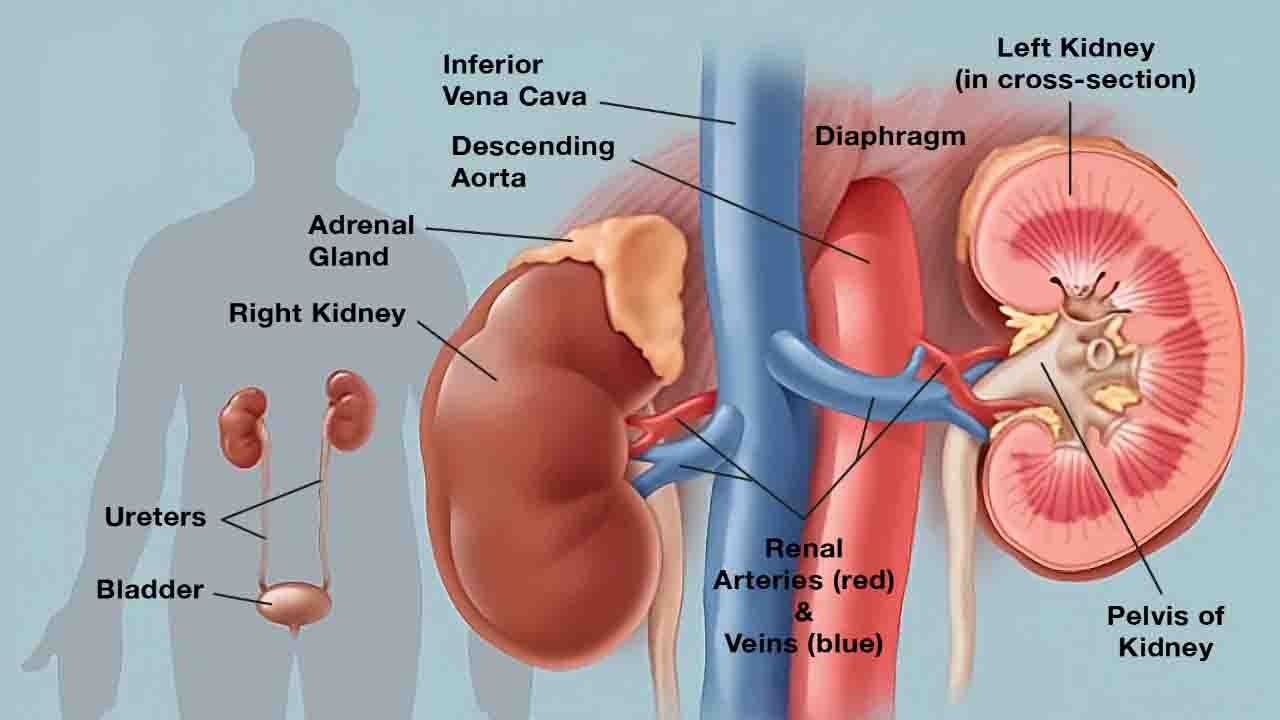
The kidneys play a crucial role in maintaining overall health by filtering waste, balancing fluids, and regulating essential minerals in the body. A kidney panel, also known as a renal panel, is a set of tests designed to assess kidney function and detect potential kidney-related disorders. These tests provide valuable insights into how well the kidneys are performing and help diagnose conditions such as chronic kidney disease (CKD), kidney infections, and other related issues.
Importance of a Kidney Panel
A kidney panel is essential for:
- Early Detection of Kidney Disease: Identifying kidney dysfunction before symptoms appear can help in early intervention and better management.
- Monitoring Chronic Conditions: Conditions such as diabetes and hypertension can affect kidney health. Regular kidney panels help in monitoring kidney function in patients with these conditions.
- Assessing Medication Effects: Some medications, especially nonsteroidal anti-inflammatory drugs (NSAIDs) and certain antibiotics, can impact kidney function. A kidney panel helps monitor any adverse effects.
- Evaluating Overall Health: Routine kidney function tests help in assessing overall health and ensuring the kidneys are functioning optimally.
Components of a Kidney Panel
A standard kidney panel consists of several tests that evaluate different aspects of kidney function. The most common components include:
1. Blood Urea Nitrogen (BUN)
BUN measures the amount of urea nitrogen in the blood, which is a waste product of protein metabolism. High BUN levels may indicate kidney dysfunction, dehydration, or excessive protein intake.
2. Creatinine
Creatinine is a waste product produced by muscle metabolism and is filtered out of the blood by the kidneys. Elevated creatinine levels suggest impaired kidney function.
3. Glomerular Filtration Rate (GFR)
GFR estimates how well the kidneys are filtering blood. A low GFR indicates reduced kidney function, which may be due to chronic kidney disease or other kidney-related disorders.
4. Electrolytes (Sodium, Potassium, and Chloride)
Electrolytes help maintain fluid balance and nerve function. Imbalances in sodium, potassium, or chloride levels can indicate kidney dysfunction.
5. Calcium and Phosphorus
The kidneys help regulate calcium and phosphorus levels in the blood. Abnormal levels may indicate kidney disease or bone metabolism disorders.
6. Albumin
Albumin is a protein that helps maintain blood volume and pressure. Low albumin levels may indicate kidney disease or malnutrition.
7. Uric Acid
Uric acid is a waste product of purine metabolism. High levels may be associated with kidney disease or gout.
How a Kidney Panel is Performed
A kidney panel is a simple blood test that requires a blood sample drawn from a vein, usually in the arm. The process includes:
- A healthcare provider cleans the skin with an antiseptic.
- A tourniquet is applied to the upper arm to make the veins more visible.
- A needle is inserted into a vein, and blood is drawn into a collection tube.
- The sample is sent to a laboratory for analysis.
Fasting is usually not required for a kidney panel, but your doctor may provide specific instructions based on your medical history.
Understanding Kidney Panel Results
Interpreting kidney panel results requires an understanding of normal reference ranges and potential abnormalities:
- BUN (7-20 mg/dL): High levels may indicate kidney dysfunction, dehydration, or high protein intake.
- Creatinine (0.6-1.3 mg/dL for men, 0.5-1.1 mg/dL for women): High levels suggest impaired kidney function.
- GFR (>90 mL/min): A lower value may indicate kidney disease.
- Sodium (135-145 mEq/L), Potassium (3.5-5.1 mEq/L), Chloride (96-106 mEq/L): Abnormal levels suggest kidney issues or dehydration.
- Calcium (8.5-10.2 mg/dL), Phosphorus (2.5-4.5 mg/dL): Imbalances may be due to kidney disease or bone disorders.
- Albumin (3.4-5.4 g/dL): Low levels may indicate kidney disease.
- Uric Acid (3.5-7.2 mg/dL): High levels may be linked to kidney disease or gout.
Causes of Abnormal Kidney Panel Results
Several factors can lead to abnormal kidney panel results, including:
- Chronic Kidney Disease (CKD): Gradual loss of kidney function over time.
- Acute Kidney Injury (AKI): Sudden loss of kidney function due to infections, dehydration, or medications.
- Diabetes: High blood sugar levels damage kidney function.
- Hypertension: High blood pressure affects kidney health.
- Kidney Stones: Blockages in the urinary tract.
- Infections: Kidney infections can alter test results.
- Medications: NSAIDs, diuretics, and certain antibiotics may affect kidney function.
Treatment and Management of Kidney Disorders
If a kidney panel reveals abnormalities, further diagnostic tests may be required. Treatment options include:
- Lifestyle Modifications:
- Maintaining a balanced diet low in sodium and processed foods.
- Staying hydrated.
- Regular exercise.
- Avoiding excessive alcohol and smoking.
- Medications:
- Blood pressure medications (ACE inhibitors, ARBs) to protect the kidneys.
- Diuretics to reduce fluid retention.
- Medications to control blood sugar in diabetic patients.
- Dialysis:
- For advanced kidney failure, dialysis may be necessary to filter waste from the blood.
- Kidney Transplant:
- In severe cases, a kidney transplant may be the best option.
Preventing Kidney Disease
Preventative measures include:
- Regular health checkups and kidney function tests.
- Managing chronic conditions like diabetes and hypertension.
- Maintaining a healthy lifestyle with proper hydration and a balanced diet.
- Avoiding overuse of medications that can harm the kidneys.
Final Thought
A kidney panel is an essential diagnostic tool that helps evaluate kidney function and detect potential issues early. Understanding its components and results can aid in the early detection, monitoring, and management of kidney-related conditions. Regular testing, lifestyle modifications, and appropriate medical interventions can help maintain optimal kidney health and overall well-being.